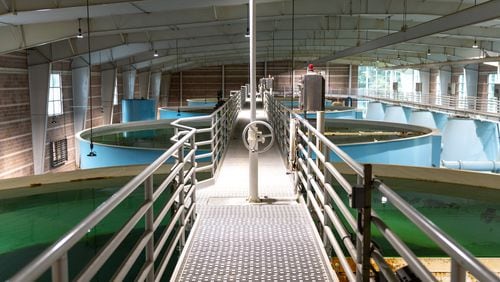PFAS, a category of toxic, manmade chemicals, have emerged as a serious health concern in Georgia’s drinking water, and it is a growing and costly issue for water utilities, environmental regulators and the public.
What exactly are PFAS or ‘forever chemicals’?
According to the U.S. Environmental Protection Agency, PFAS, an acronym for per- and polyfluoroalkyl substances, have been used for decades in manufactured goods and commercial items such as non-stick cookware, cleaning products, firefighting foams, stain- and rain-repellent clothes and some body care products. Since most PFAS do not break down, they persist in the environment, earning them the nickname of “forever chemicals.”
How and why are they in Georgia’s drinking water?
Considering they are found in such commonly used products, PFAS are nearly unavoidable. These products come from industrial sites and often find their way into landfills and bodies of water. For this reason, they can contaminate our drinking water.
Are measures being implemented to combat PFAS contamination?
Based on growing evidence linking the chemicals to fertility problems, developmental delays and increased risk of certain cancers, the EPA has begun steps to establish legally enforceable drinking water standards for some PFAS. In 2023, the EPA proposed federal drinking water limits for some of the most common PFAS, but the standards have not been finalized. .
For water providers, there are some treatment processes that are effective at removing PFAS from water. But most are extremely expensive and there are questions about how Georgia’s water systems will pay for them.
About the Author






